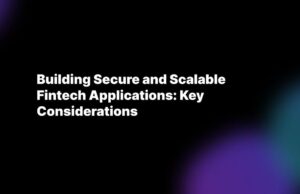Do you want to start a digital financial institution or payment processing company soon? Planning to submit an application for a Payment or Electronic Money Institution license? You could learn certain things for the first time. This article will help you anticipate the expenses associated with operating a payment or electronic money institution, so be sure to read it before you get started!
But first, you must grasp the current beginning system. Becoming a licensed Payment or Electronic Money Institution is neither quick nor inexpensive. In actuality, it may take as long as a year and a half to get a license, and that doesn’t even include the time spent paying for professional help like lawyers and accountants.
Therefore, it is important to take baby steps in the fintech business, just as one would in everyday life or turn to a fintech attorney for help. These are the three tenets upon which our beliefs are founded.
- Processing licenses for payment or electronic money institutions are expensive. Everything from the cost of starting out financially and in terms of software, to the cost of assembling and managing a team, to the cost of hiring a consultant to help with document preparation, must be included in a budget.
- Depending on the governing body, evidence of solvency and access to extra capital to cover cash flow shortages in the first or second year of operations.
- Assuming you pass the regulator’s examination and are granted permission to operate, you’ll need to implement the strategy you presented before you were licensed. You must thus assume responsibility for the associated expenses.
It may take anything from a year to two years and an average of half a million to one million Euros to get an EMI banking license and have a payment or electronic money institution up and running.
Over the last several years, there have been significant shifts in the fintech industry. Only a corporation that meets all the criteria may be granted a license. It is critical to realize that the regulatory environment for businesses is becoming more difficult as authorities increase the complexity of the necessary standards and the expense of obtaining a license.
In what ways have rules gotten more complicated in recent decades? It is now more important than ever to have the right people on your team, to have enough money to get started, and furthermore, to demonstrate your company’s viability over the next three to five years.
For instance, authorities have been pickier about who should fill what roles and how businesses function at the regional level. In light of this demand, businesses should hire between five and 10 seasoned experts. Consequently, salary expenditures will rise even higher.
In most cases, the following items contribute to the total price of becoming a licensed Payment or E-Money Institution:
- A business program, financial model, business strategy, and more than 10 policies covering every facet of the organization have all been drafted;
- spending on the team that satisfies both the company and the government’s needs;
- Software costs, often a one-time or recurring upfront purchase or setup charge;
- Extra expenses:
- fees associated with account protection, business formation, office space, and accounting services;
- license application/authorization charge;
- papers need to be certified (and in certain cases translated if the local regulator insists on reading them in their native language);
- the price of sending the company’s owner or a team there to be licensed (if necessary)
Initial Share Capital The total amount of money that may be used to purchase shares in a firm or to pay for the startup costs of a new business.
At Fintech Harbor Consulting you’ll learn about the many licensing options available to Payment and E-Money Institutions, as well as the associated expenses and get help with it.




